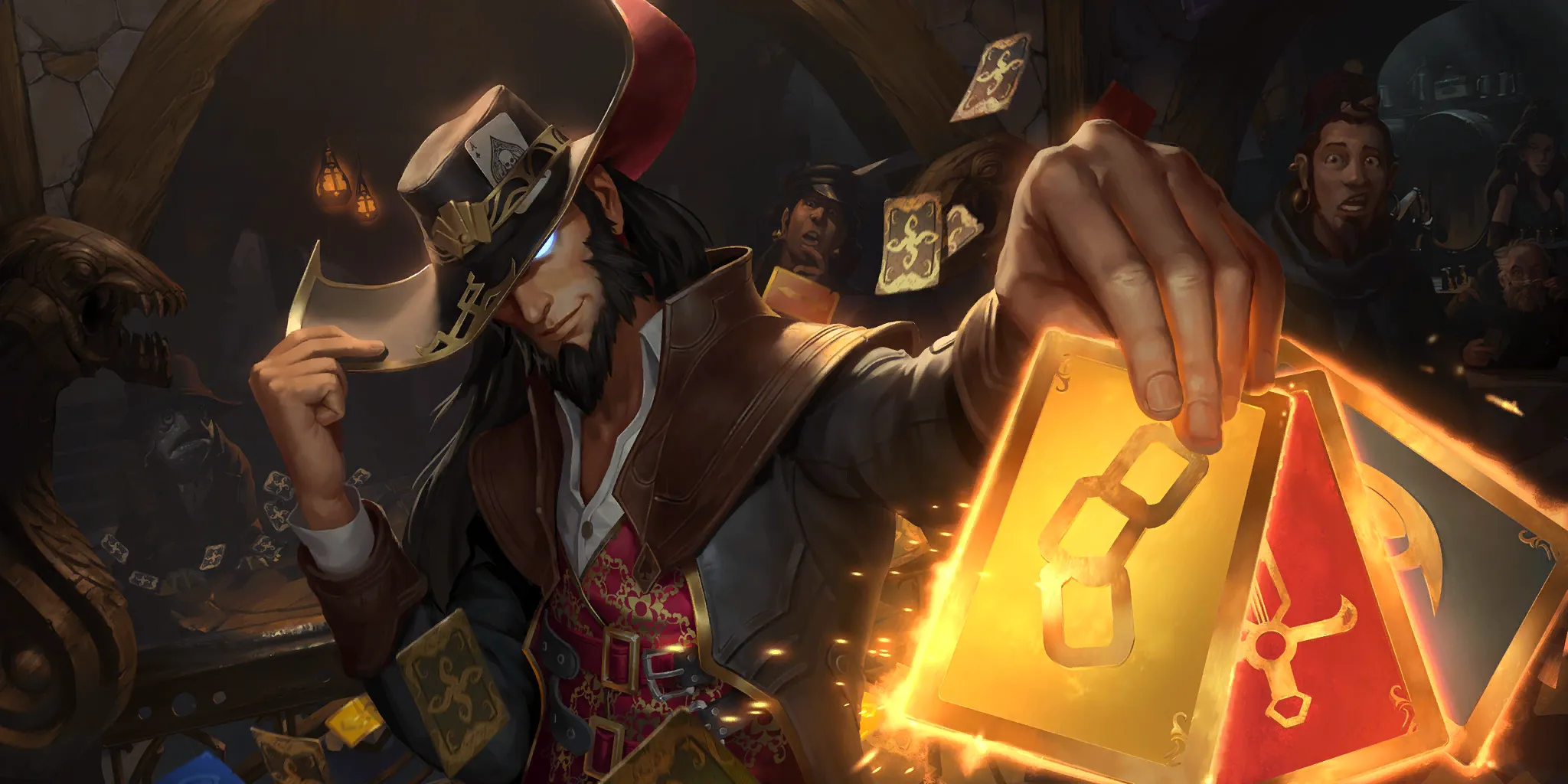Hey all, Dr Chekhov here. I’ve been playing a lot of Annie/TF recently and wanted to share what I’ve learned about the deck.
Annie/TF is currently the most-played deck across all regions, with a playrate of 6%. The deck existed before the recent balance patch, but the buff to Riptide Rex enabled this deck to soar in winrate, going from 50% to 55% overnight. Its WR has dropped a little as the metagame has adjusted, but the deck remains a strong contender both on ladder and in tournament play.
enabled this deck to soar in winrate, going from 50% to 55% overnight. Its WR has dropped a little as the metagame has adjusted, but the deck remains a strong contender both on ladder and in tournament play.

21 cards
19 cards
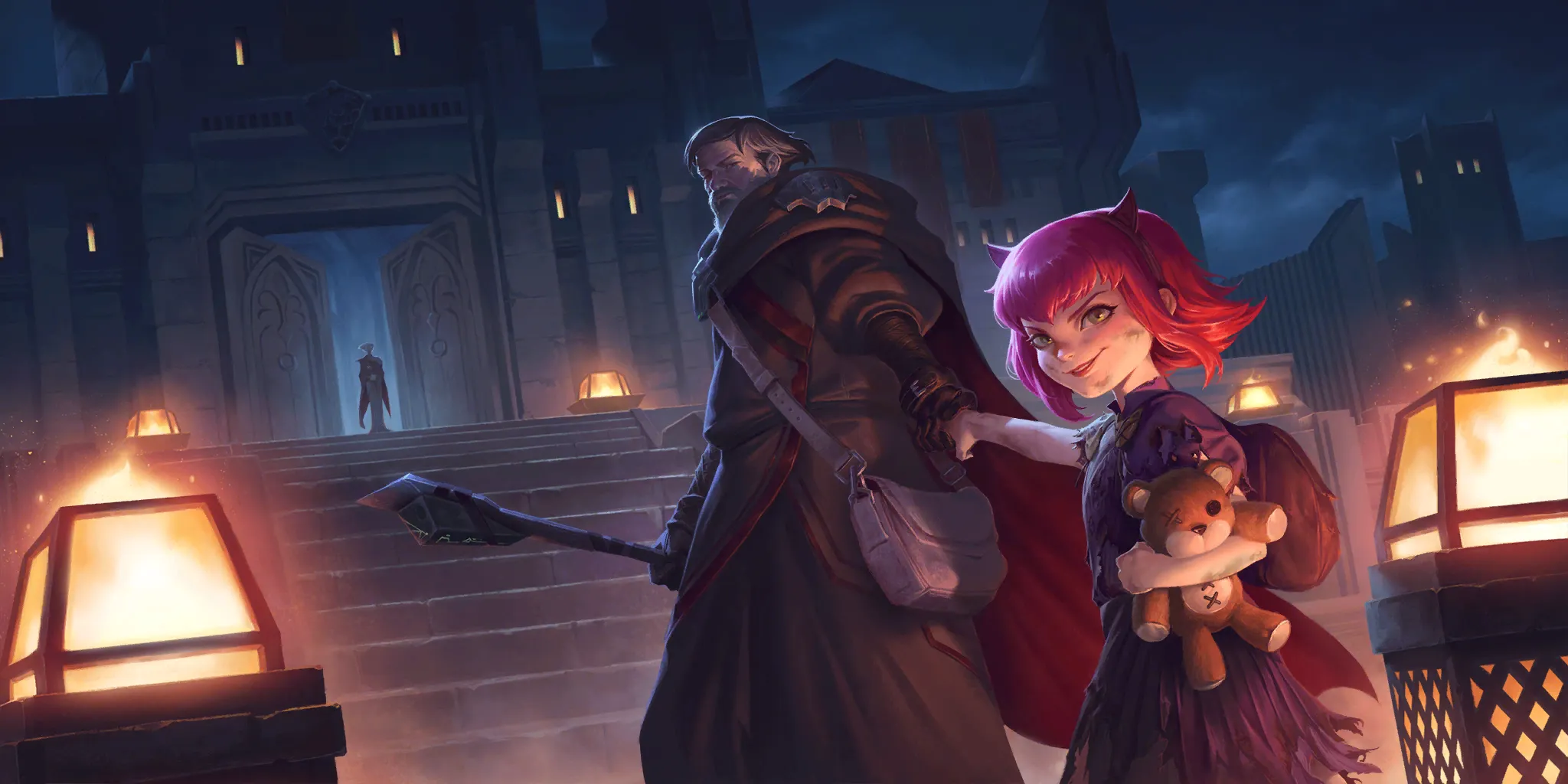
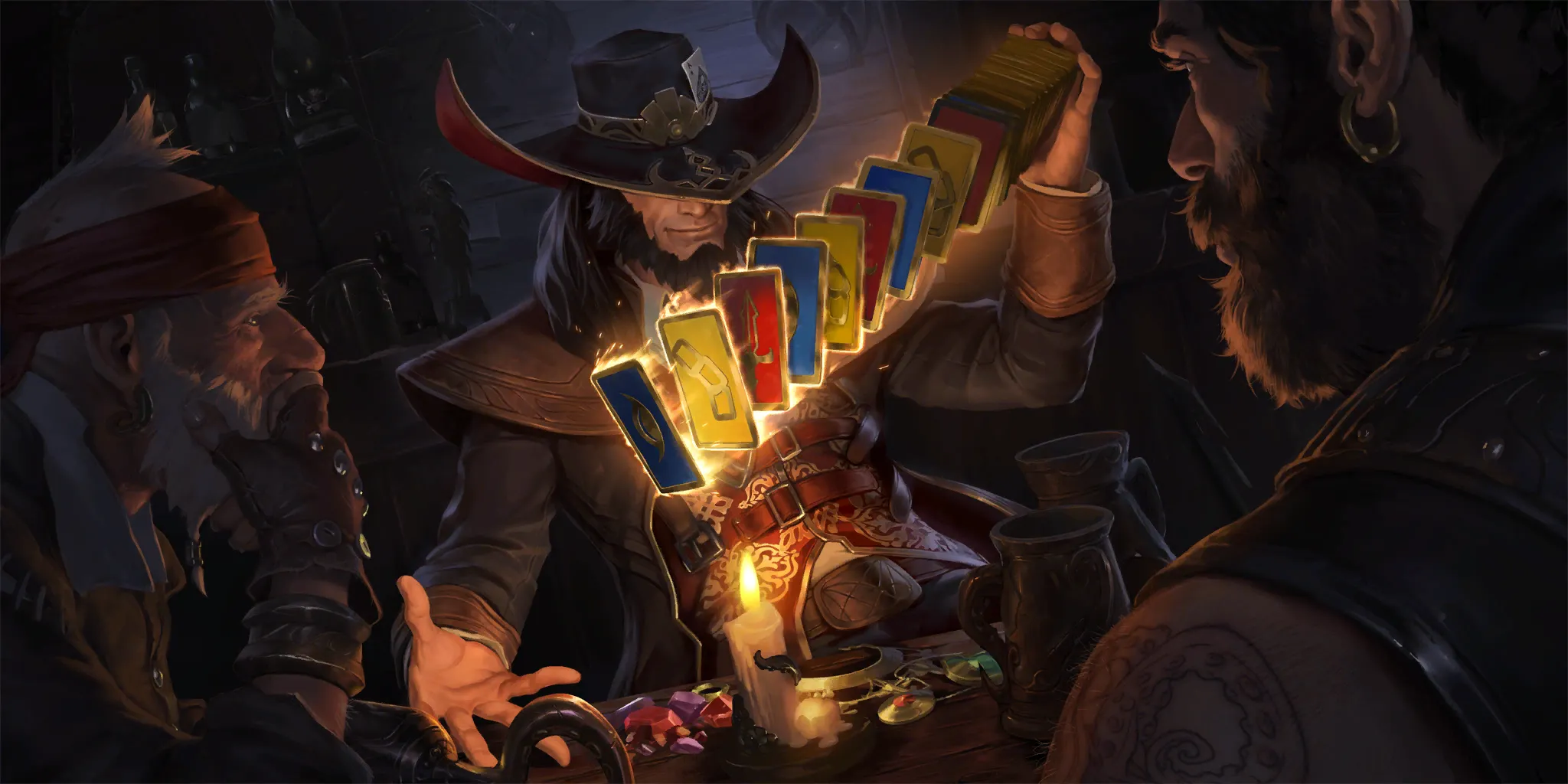
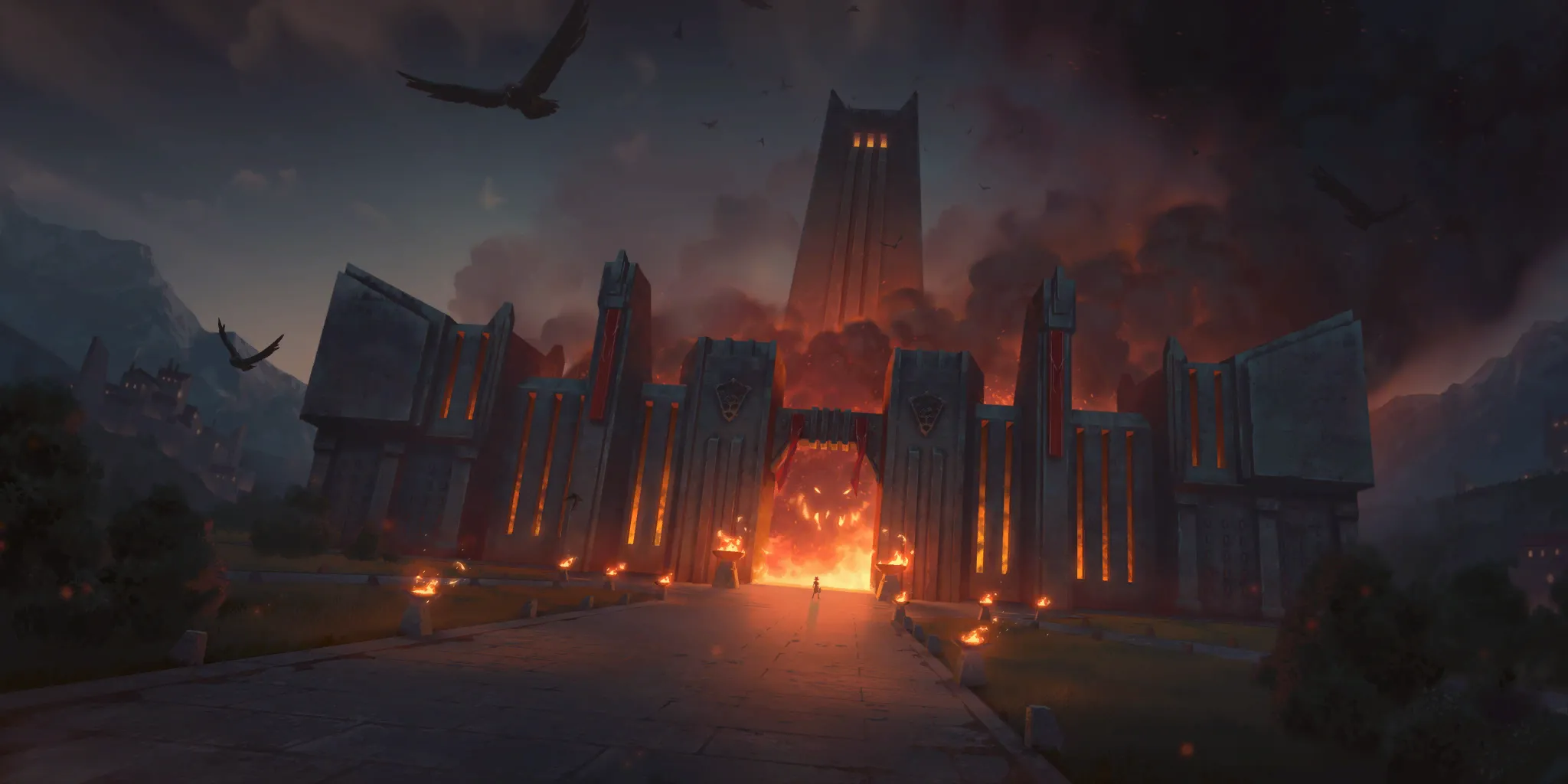
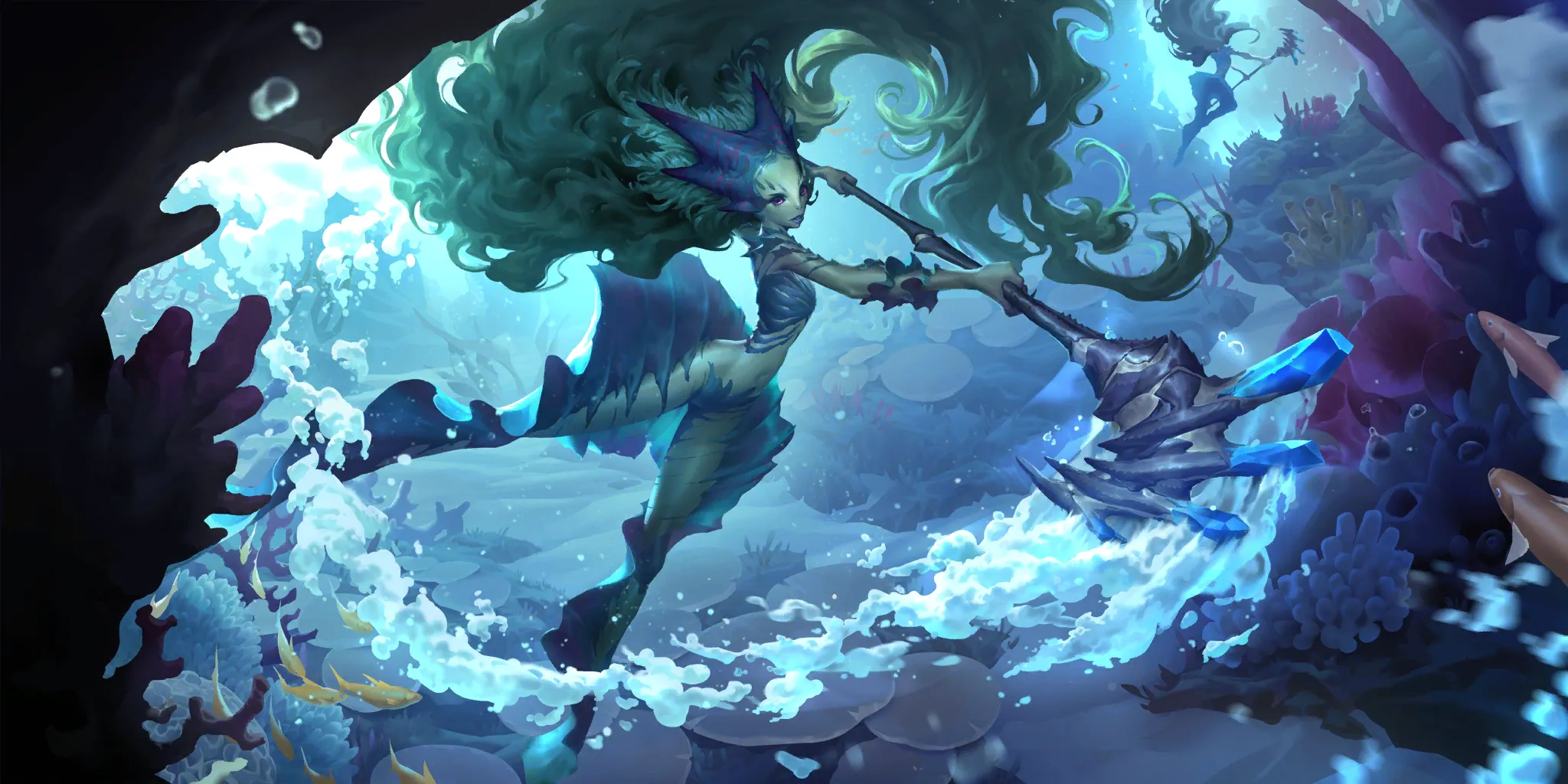
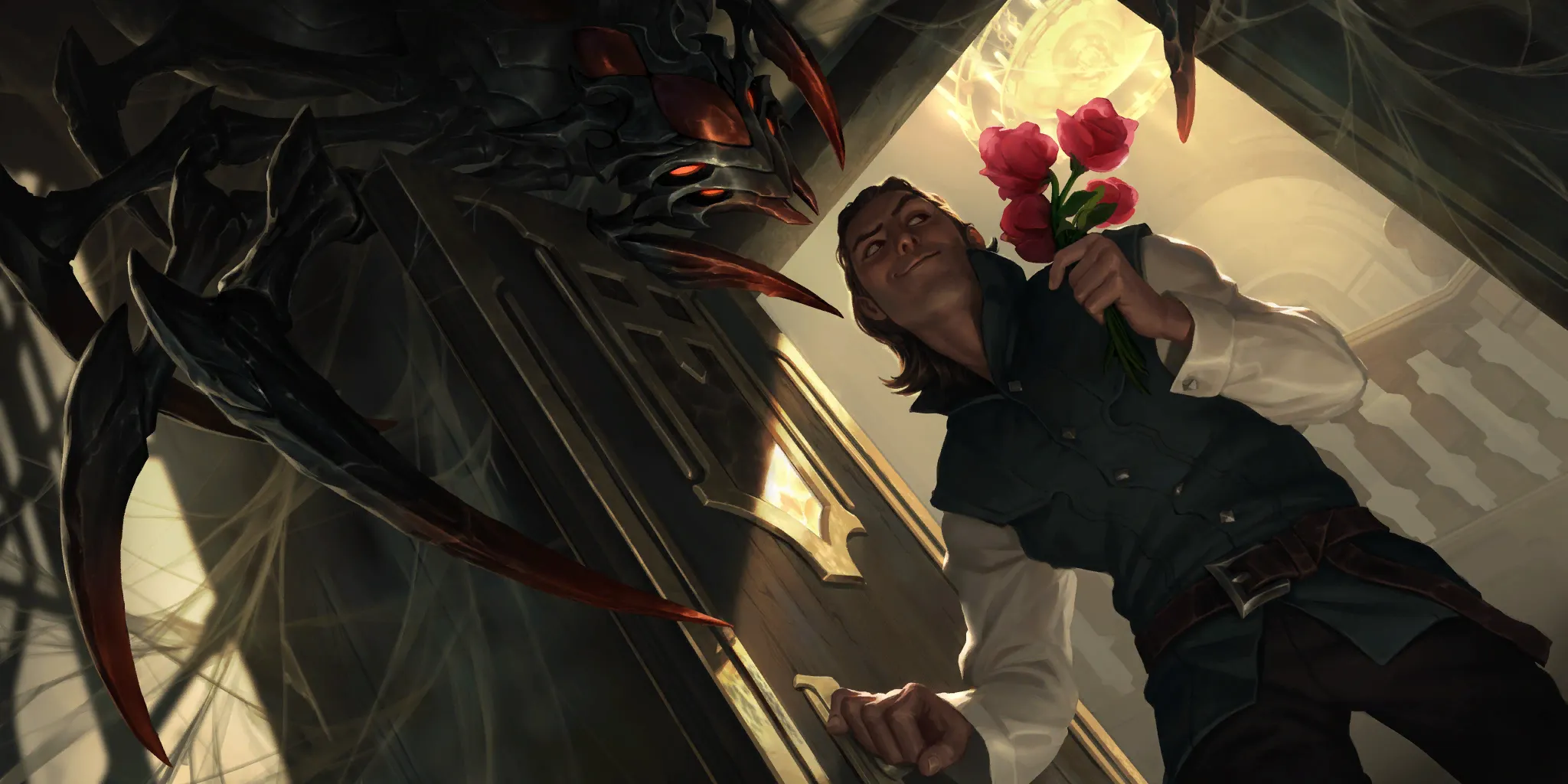
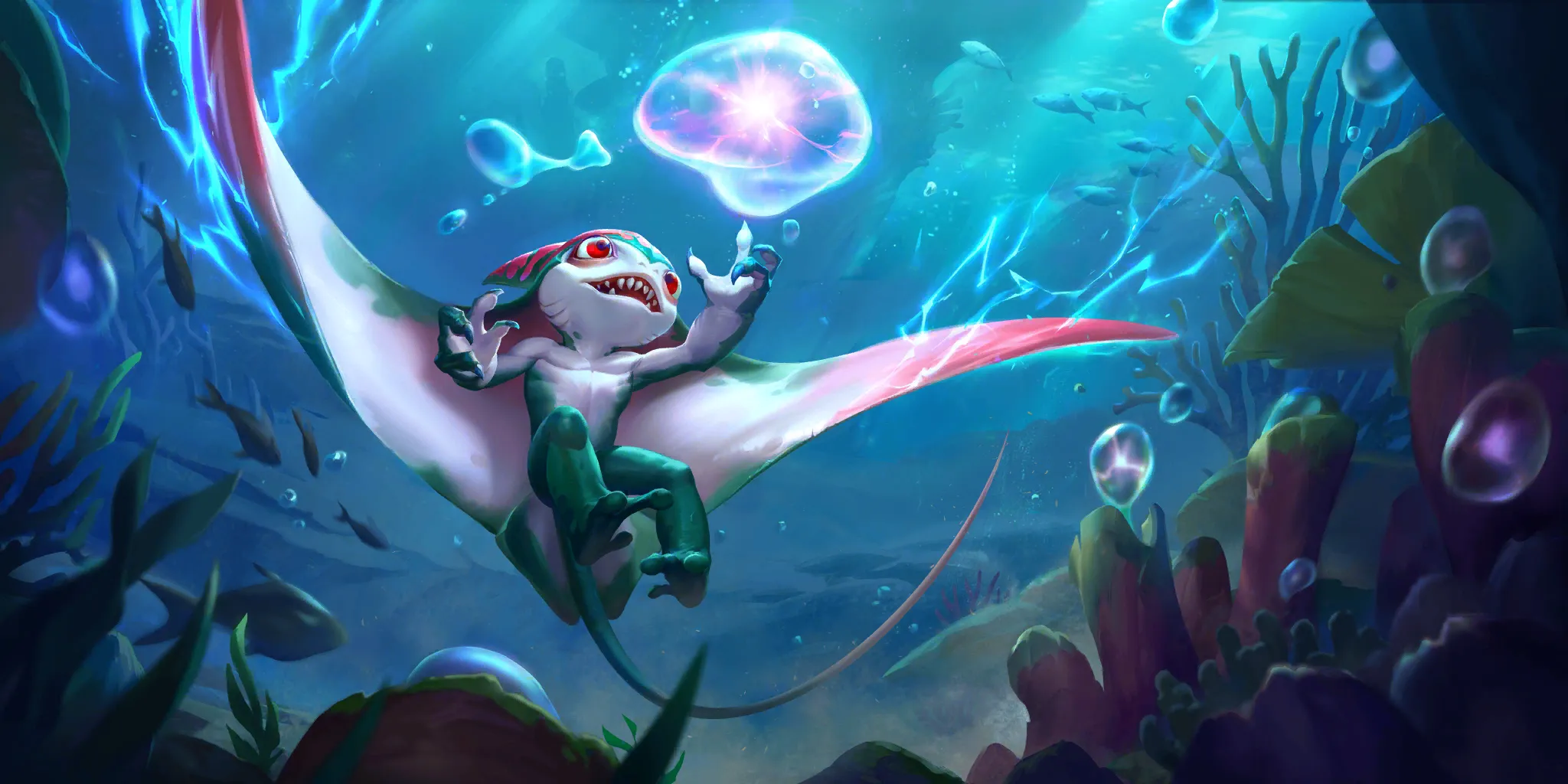
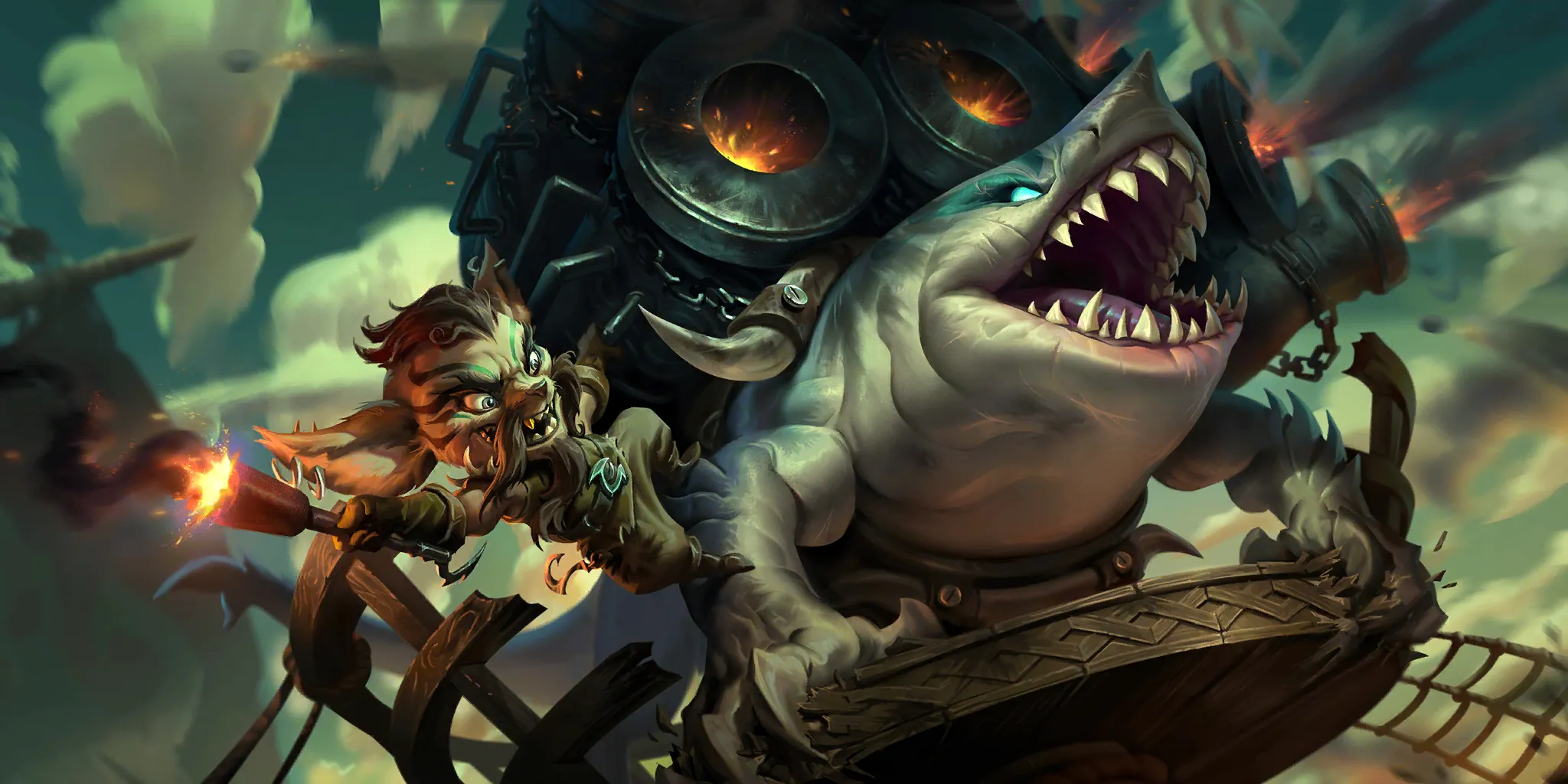
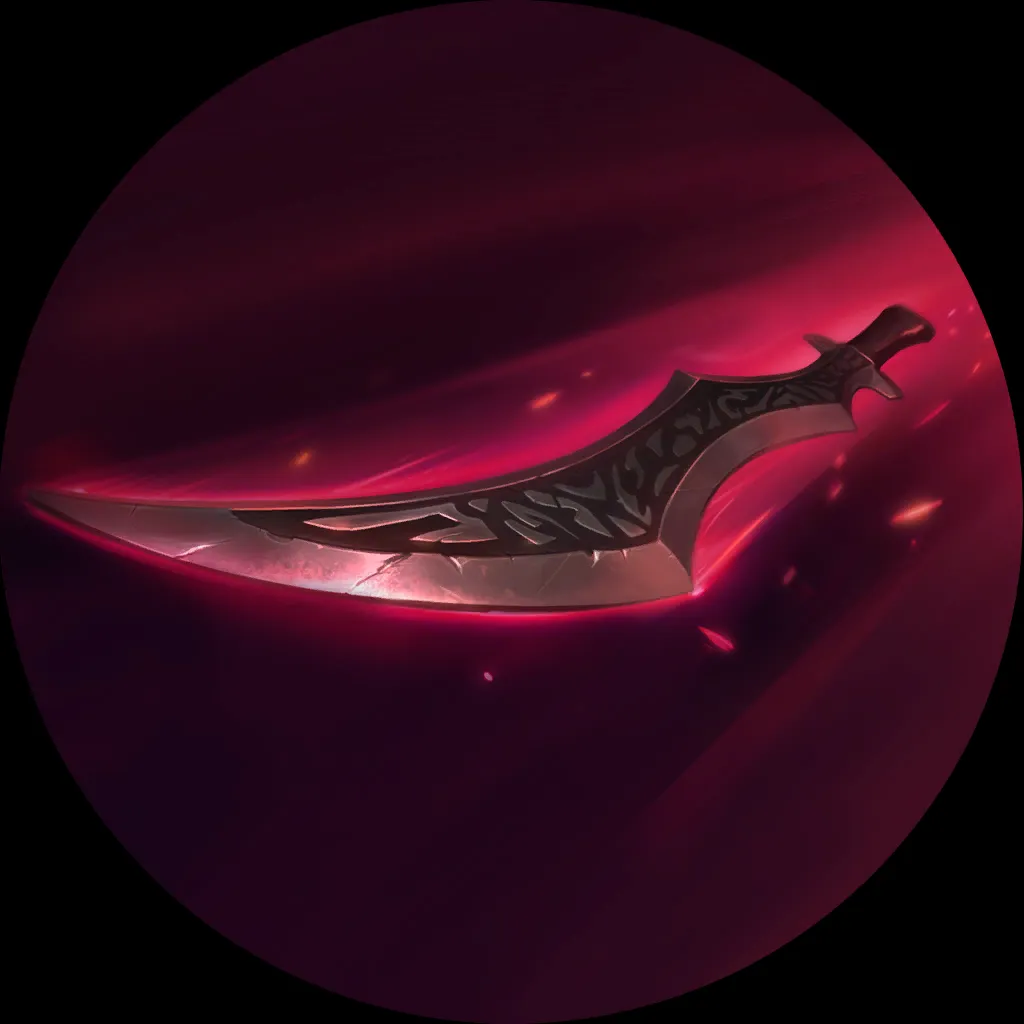

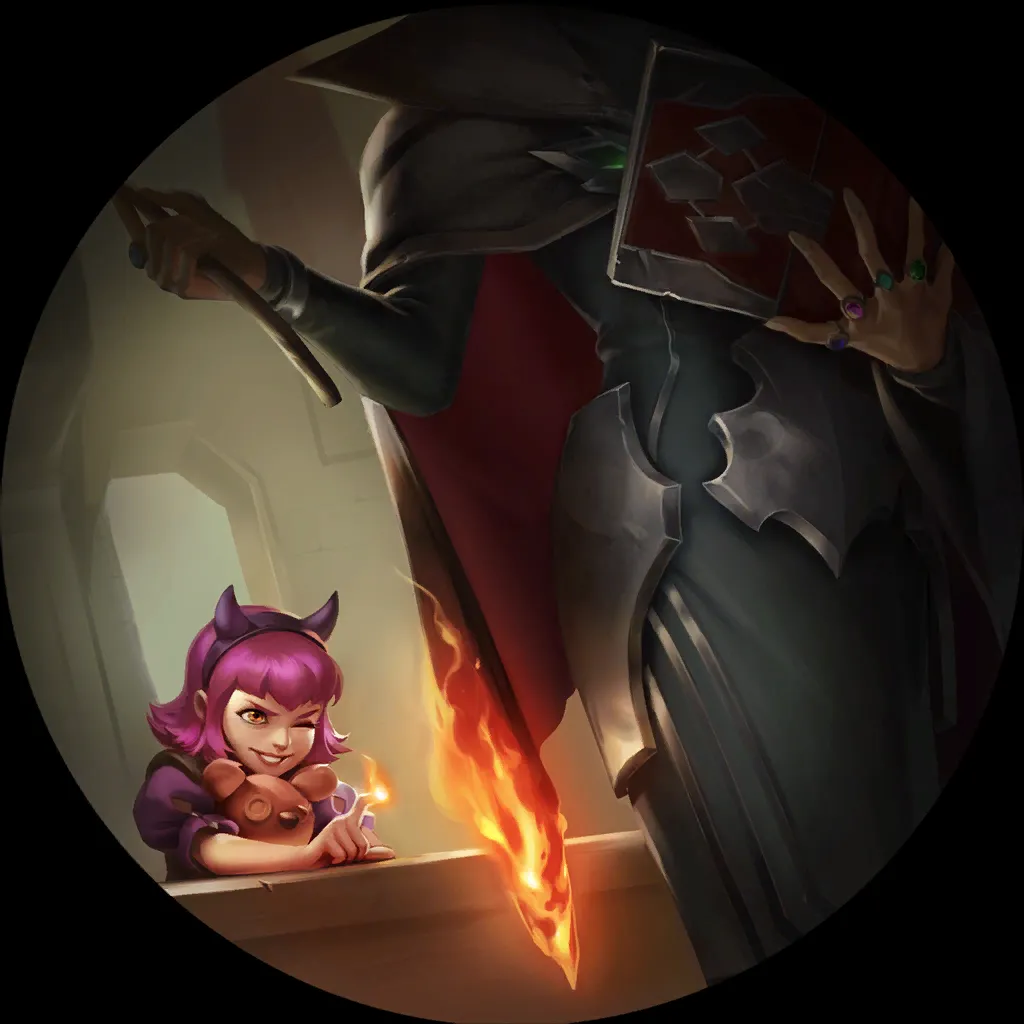


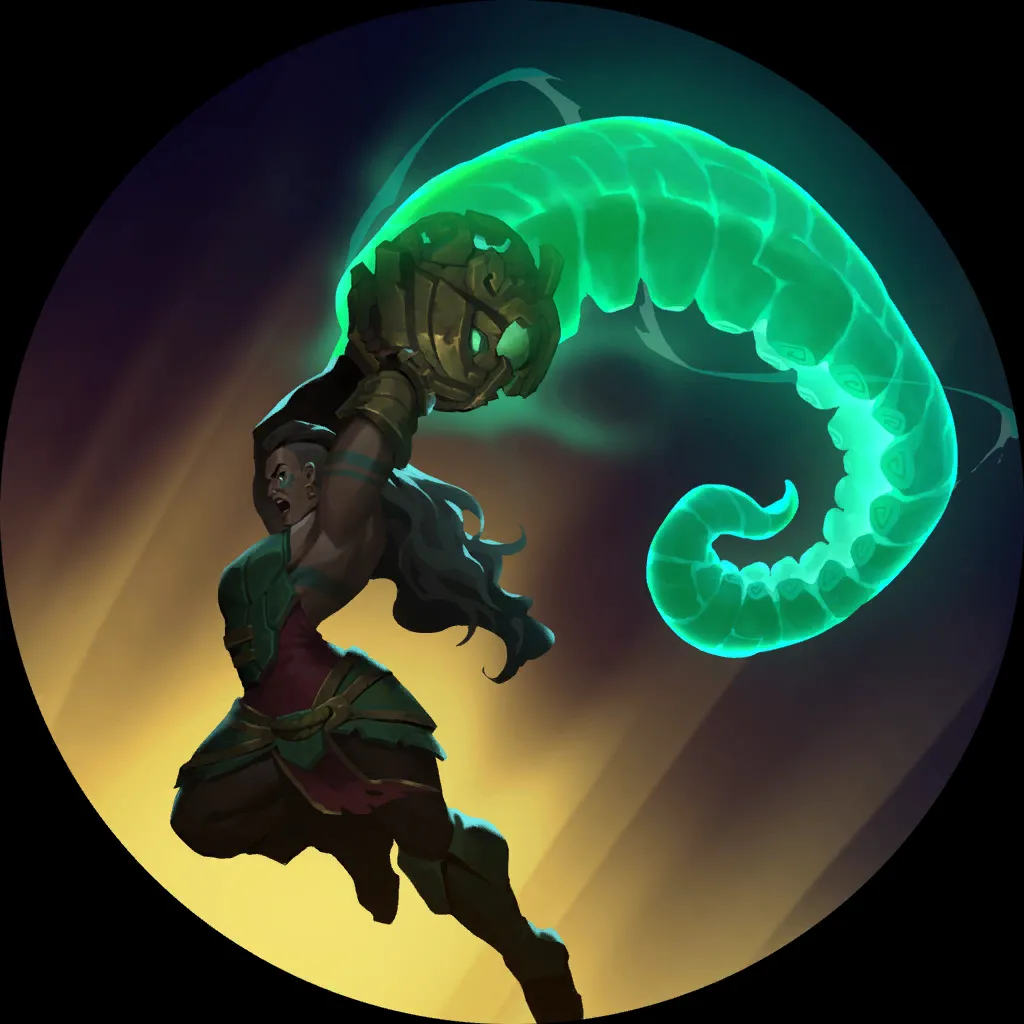
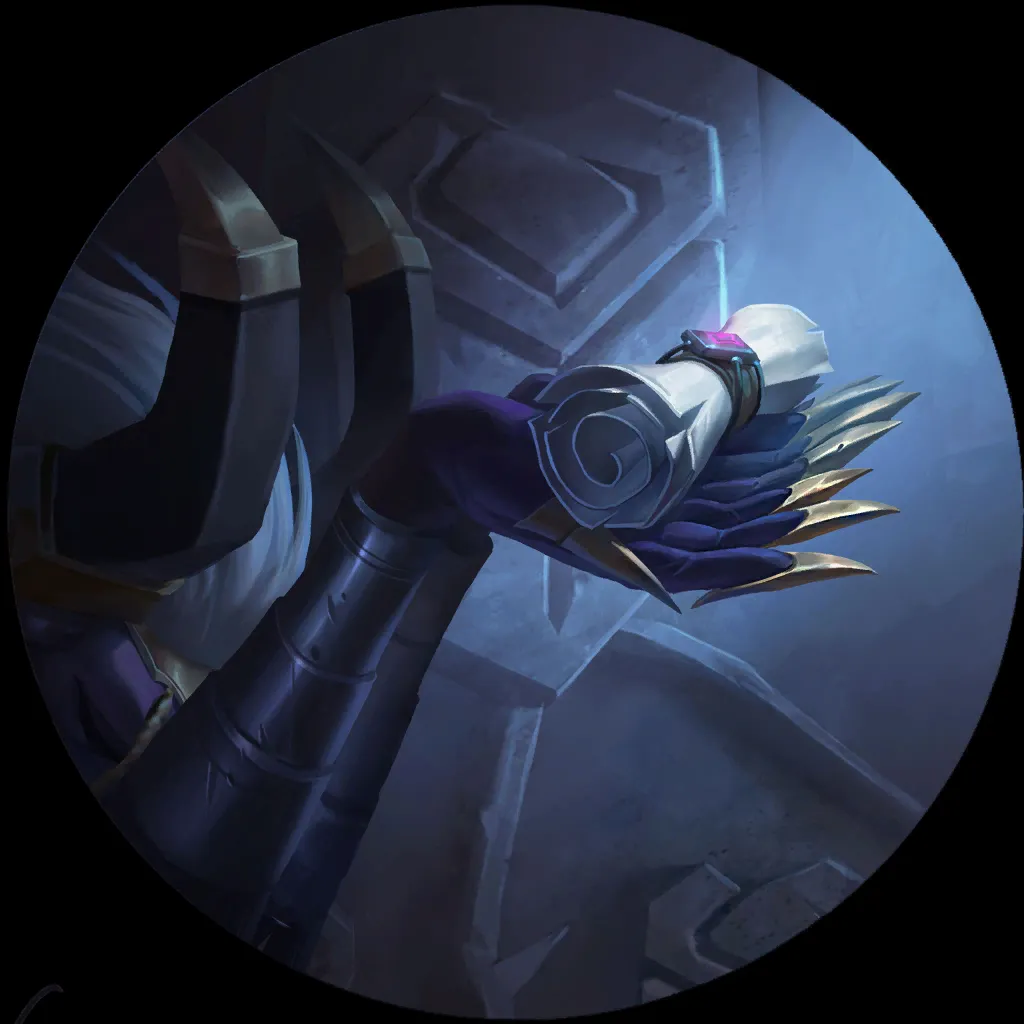
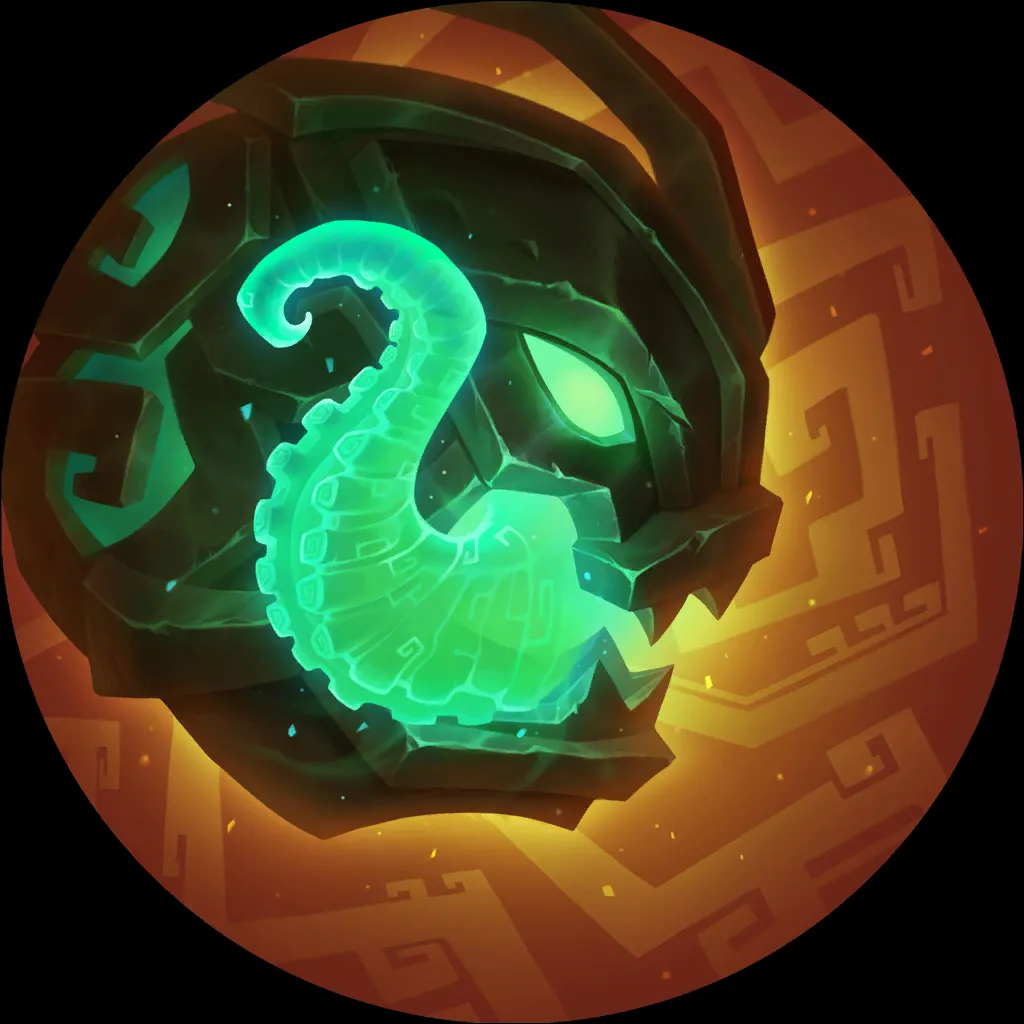
An Adaptable Deck
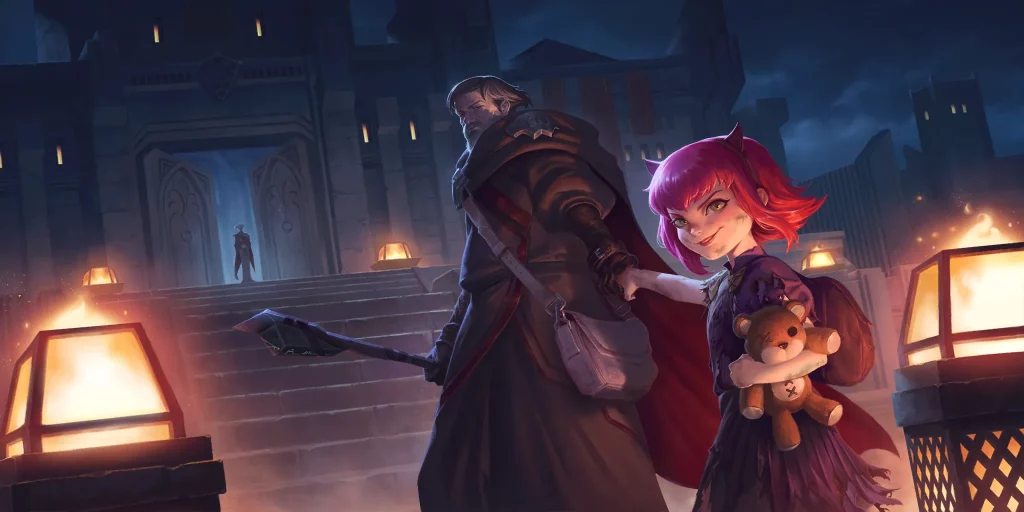
Annie/TF is an extremely flexible deck that fits multiple styles of play.
Some players prefer to play it as a control deck with a combo finish, carefully removing the opposing units until finally hitting the opponent with a massive Riptide Rex .
.
Others play it as a tempo deck, which looks to remove the opponent’s units while creating threats of its own.
With some hands (mostly involving Annie on the first round, into Marai Warden
on the first round, into Marai Warden or House Spider
or House Spider on round two), the deck can push as much early damage as an aggro deck.
on round two), the deck can push as much early damage as an aggro deck.
This flexibility of style combined with many tech card options means that every player’s version of Annie/TF has its own unique strengths and weaknesses.
Key Cards
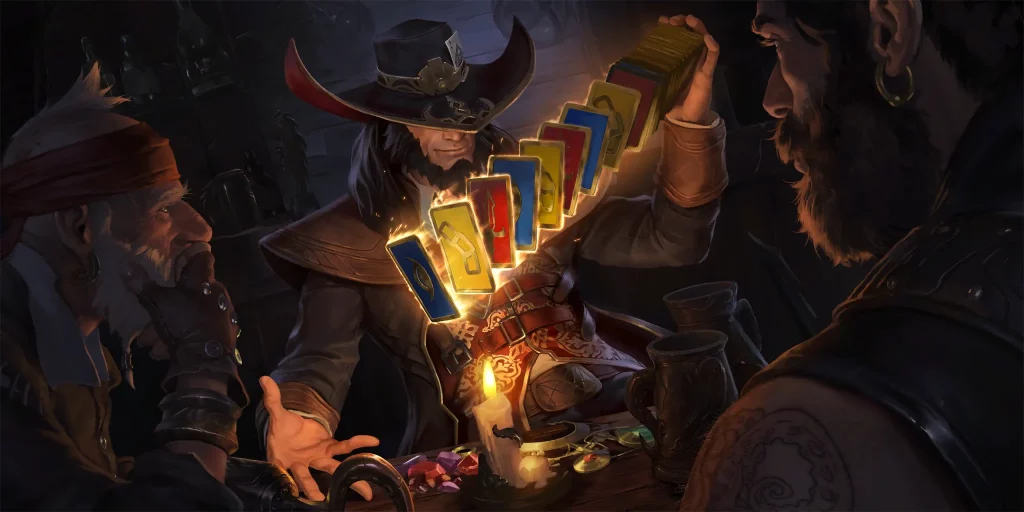

The release of Ravenbloom Conservatory has enabled a lot of new archetypes, but Annie/TF is probably the deck which best makes use of it.
has enabled a lot of new archetypes, but Annie/TF is probably the deck which best makes use of it.
While playing removal spells and skills we want to play anyway, Ravenbloom lets the deck progress towards its win condition: Tybaulk . Once you summon Tybaulk, all your spells and skills deal one more damage, which enables almost all our cards to deal crazy amounts of burn to the opponent’s nexus.
. Once you summon Tybaulk, all your spells and skills deal one more damage, which enables almost all our cards to deal crazy amounts of burn to the opponent’s nexus.
After dropping Tybaulk (or two, or three!) the amount of damage the deck can generate per card is insane.

Annie is a powerful and flexible champion, and you nearly always want her on round one.
is a powerful and flexible champion, and you nearly always want her on round one.
This deck can level her very quickly, and on level-up she generates Tibbers , which is a 5/5 Fearsome unit with a powerful effect: Tibbers stuns a unit and deals 2 to all stunned or damaged units.
, which is a 5/5 Fearsome unit with a powerful effect: Tibbers stuns a unit and deals 2 to all stunned or damaged units.
This is huge, because this deck is very good at damaging the opponent's units.
And, with two health, Annie can be hard to kill efficiently for many decks. Mystic Shot , for example, trades down, since it costs two mana and Annie only costs one. The best way to remove Annie is through challenger units, such as Petricite Broadwing
, for example, trades down, since it costs two mana and Annie only costs one. The best way to remove Annie is through challenger units, such as Petricite Broadwing , or strike effects like Single Combat
, or strike effects like Single Combat and Tentacle Smash
and Tentacle Smash , so be careful with your Annie against Demacia and Bilgewater!
, so be careful with your Annie against Demacia and Bilgewater!

Twisted Fate ’s flexibility has made him a powerful champion since his release, but he really shines in this deck.
’s flexibility has made him a powerful champion since his release, but he really shines in this deck.
His Red Card is a very powerful tool, allowing us to kill an entire board of one-health units, and enabling our Ravenous Flock on those that survive. The Red Card also benefits a lot from Tybaulk, dealing two to the entire board and the nexus, making TF a one-sided Avalanche
is a very powerful tool, allowing us to kill an entire board of one-health units, and enabling our Ravenous Flock on those that survive. The Red Card also benefits a lot from Tybaulk, dealing two to the entire board and the nexus, making TF a one-sided Avalanche .
.
And, because his card is a skill, it levels Annie and progresses our Ravenbloom Conservatory .
.
Finally, with card draw from Eye of Nagakabouros and Zap Sprayfin, he can even level-up if he is allowed to remain on board, which is usually game-winning.

Since his buff, Riptide Rex has become an insane finisher for our deck.
has become an insane finisher for our deck.
Normally, each cannon barrage does 2 damage to a unit, or if there is no unit for it to hit, 1 to the nexus. After playing Tybaulk, each barrage deals 3, or 2 to the nexus. If your opponent has no units, that’s a cool 14 (!!) burn damage!
Even if you’re behind, Rex can quickly turn a game around – since his ability casts 7 skills, he progresses Conservatory by 7, and if Annie is on board, she instantly levels up. One thing though: beware of Rite of Negation !
!
Removal
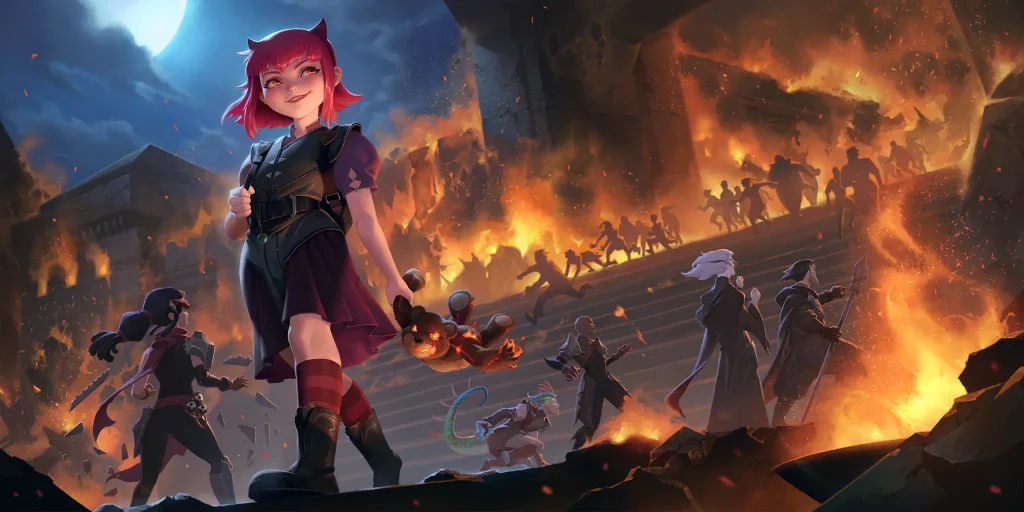
Removal in this deck (like for most Noxus control decks) can be divided into pings and finishers.
Pings



Pings deal with weak units while putting damage on more resilient units, allowing us to finish them off with one of our finishers.
Make it Rain can destroy early boards, which are often composed of one-health units. Blade's Edge
can destroy early boards, which are often composed of one-health units. Blade's Edge is similarly flexible, allowing us to kill a small unit, damage a big unit, or even just deal one to their nexus to enable the Plunder effect of Riptide Rex. Death's Hand
is similarly flexible, allowing us to kill a small unit, damage a big unit, or even just deal one to their nexus to enable the Plunder effect of Riptide Rex. Death's Hand provides a bit of flexibility in dealing with two-health units, and similarly adds a bit of burn damage.
provides a bit of flexibility in dealing with two-health units, and similarly adds a bit of burn damage.
Finishers



Finishers allow us to kill big units in combination with our pings (as well as damage from our units). Ravenous Flock is especially good to have on rounds 3-5, while Disintegrate
is especially good to have on rounds 3-5, while Disintegrate and Scorched Earth
and Scorched Earth can get value at any point in the game.
can get value at any point in the game.
The key to this deck is balancing our pings and finishers – the deck’s worst hands are when you draw 2-3 finishers but no way to damage a unit to enable them.
Hands with multiple pings and no finishers are much better in the early game, but can become similarly bad when the opponent plays high-health units.
For this reason, pay careful attention to the way you’re using your removal. If your hand is full of pings and a single Ravenous Flock , make sure that Flock hits a priority target. A mistake nearly all beginners make is using Flock on some unimportant unit in order to avoid taking a few points of damage, leaving them unable to deal with a more important threat later.
, make sure that Flock hits a priority target. A mistake nearly all beginners make is using Flock on some unimportant unit in order to avoid taking a few points of damage, leaving them unable to deal with a more important threat later.
Game Plan

One of Annie/TF’s great strengths is the ability to adapt its gameplan to the state of the game.
With that in mind, I’ll describe two basic play patterns for the deck: a proactive plan, and a reactive plan. When you play this deck, you often shift between these two plans, even as often as every turn, but to keep things simple:
Proactive game plan: (vs. slow decks)
Play Annie or Ravenbloom on round one.
Play Marai Warden or House Spider and attack, removing the opponent’s units as they play them, even inefficiently, so as to progress the landmark quickly and level up Annie.
Try to push as much damage as possible – consider playing Eye of Nagakabouros and instantly attacking to push an extra two damage.
and instantly attacking to push an extra two damage.
If there are no units you particularly want to Red Card or Gold Card
or Gold Card , you can use TF’s Blue Card
, you can use TF’s Blue Card to refuel and threaten to level him up.
to refuel and threaten to level him up.
When playing proactively, you are looking to put as much pressure on the opponent as possible to force them to use resources early and inefficiently and to threaten their health total, so you can finish them off with Tybaulk ’ed spells or a devastating Riptide Rex
’ed spells or a devastating Riptide Rex .
.
Reactive game plan (vs. decks with lots of threats)
Abuse the most powerful weapon in Runeterra, your pass button!
Keep up mana, and remove each of their threats as they come.
Opponent has 3-4 mana? Hold Arachnoid Sentry plus Ravenous Flock
plus Ravenous Flock in hand to efficiently deal with pesky champions like Miss Fortune, Aphelios, Viktor, Gnar, Renekton – the list goes on.
in hand to efficiently deal with pesky champions like Miss Fortune, Aphelios, Viktor, Gnar, Renekton – the list goes on.
Above all: be careful to use your removal as efficiently as possible.
Efficiency means this: rather than playing Blade's Edge on your opponent’s Lunari Duskbringer, consider leaving units with 1 health alive until you can play TF’s Red Card to clear the whole board. This way, you maintain Blade's Edge as removal for the opponent’s next threat.
to clear the whole board. This way, you maintain Blade's Edge as removal for the opponent’s next threat.
Tech Choices
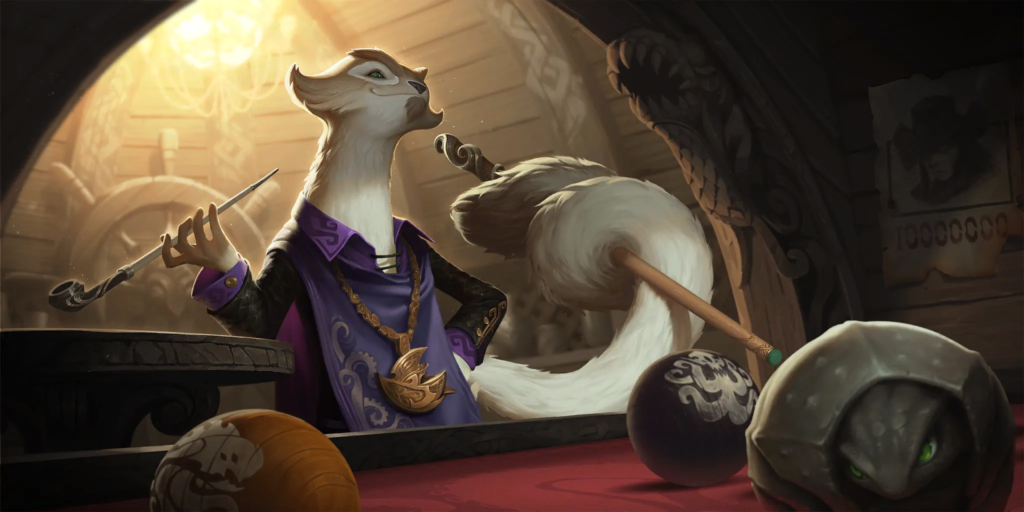
I’ve harped on about Annie/TF’s flexibility, so it should come as no surprise there are lots of different ways to build the deck.
Drawing Cards (Whispered Words, Salvage, Pool Shark, Fortune Croaker)
Immediately before the last patch, Cephalopod tweeted his take on Annie/TF.
This version is slightly obsolete – nearly all Annie/TF players now agree that buffed Riptide Rex is far too strong not to include – but nevertheless, running 7 (!) “Draw Two Cards” spells, including not just Eye of Nagakabouros but also Whispered Words
but also Whispered Words and 1x Salvage
and 1x Salvage , enables this version to almost never run out of fuel and constantly threaten TF’s level-up, which can be very powerful.
, enables this version to almost never run out of fuel and constantly threaten TF’s level-up, which can be very powerful.
The downside of all this card draw is that it can be too slow on critical turns, and it does not contribute to Annie or Ravenbloom. Other versions have tried Pool Shark and Fortune Croaker, but in my view they are too inconsistent to work well in the deck.
Scorched Earth
Useful if you see a lot of landmark decks. Otherwise, Disintegrate is generally better.
is generally better.
Tentacle Smash
In my opinion, this tech is just what the deck needs. Tentacle Smash is a great card in general, and works well here.
is a great card in general, and works well here.
It gives the deck 3-damage removal, and with Eye of Nagakabouros the damage can scale up as well. As a slow spell, it progresses our landmark and levels Annie, and in control matchups you can even simply summon the tentacle without striking as a 3/3. The only question is two copies or three– personally I have gone with 2x, but TomasZamo, among other top players, plays 3.
Legion Saboteur
This card asks the age-old question: “Who is the beatdown, after all?”
Legion Saboteur pushes lots of early damage and punishes slow decks, while simultaneously being great for leveling Annie and progressing Ravenbloom. The only problem with this card is that it’s not great on defense, and having 1 health allows the opponent’s pings and board wipes to gain value, especially when combined with Marai Warden. I would strongly urge more Annie/TF players to consider this card, but it remains, for now, experimental.
pushes lots of early damage and punishes slow decks, while simultaneously being great for leveling Annie and progressing Ravenbloom. The only problem with this card is that it’s not great on defense, and having 1 health allows the opponent’s pings and board wipes to gain value, especially when combined with Marai Warden. I would strongly urge more Annie/TF players to consider this card, but it remains, for now, experimental.
Marai Warden vs. House Spider
vs. House Spider
Now comes the real debate!
Annie/TF players are divided: which go-wide 2-drop is better?
I decided I wanted to objectively determine this, so I did a calculation: I looked at every 1-drop in the game to see whether Marai Warden was likely, on average, to provide better value than House Spider
was likely, on average, to provide better value than House Spider .
.
House Spider is a 2/2 and a 1/1, which is 6 total stats. If we ignore card text completely, this is better than Marai Warden, which summons an average of 5.92 total stats. If we factor in a card’s text, however, Marai Warden provides more value on average, giving units 6.46 total stat value (feel free to contact me on Discord at dr_chekhov#9791 if you’d like to know more about my methodology!).
I also calculated how useful each card’s text was likely to be for Annie/TF in particular, which was even higher, with Marai averaging 6.54 total stats.
So, is Marai Warden better than House Spider
better than House Spider ?
?
The jury is still out. In a vacuum, Marai provides more stats and better effects on average. However, not all stats are created equal. Marai Warden (2|1) summoning a Greenglade Caretaker (1|2) is the same total amount of stats (6) as a House Spider (2|2) and a spiderling (1|1), but one could argue that the placement of Marai’s stats is worse.
Another argument is simply about variance. Some players don’t mind playing around high- and low-rolls, but others would prefer their decks to be consistent and predictable, in which case House Spider is the better option.
I would argue that it’s a matter of taste – but as someone who doesn’t mind walking on the wild side, I’ll be playing Marai.
Matchups

Azir/Irelia - Very Favored
Azirelia has always struggled with removal decks, and ours is no exception.
We kill their Sparring Student at the start of each turn, when it has only one health, and Death's Hand is a great way to deal with Irelia.
Attack them aggressively and look to push damage, but otherwise play the reactive gameplan, holding up mana and removal to deal with their champions. Without champions, they struggle to get going.
Bard Demacia - Slightly Favored
“Flock decks beat Demacia” has been true for the entire life of the game – but Demacia always finds ways to make it difficult.
Beware of Ranger's Resolve ! Mull for Ravenous Flock
! Mull for Ravenous Flock and Arachnoid Sentry
and Arachnoid Sentry , and look for opportunities to Tentacle Smash
, and look for opportunities to Tentacle Smash Poppy if they run her.
Poppy if they run her.
Aphelios Winding Light - Even
Twisted Fate and Make it Rain are very powerful in this matchup, and if the opponent overcommits, they can often find themselves with an empty board on their The Winding Light turn. Tentacle Smash gets great value on Aphelios or a Flame Chompers!
turn. Tentacle Smash gets great value on Aphelios or a Flame Chompers! .
.
Aphelios does have the power to outvalue us, however, and some versions of this deck have already started cutting one-health units to make room for more robust threats.
Akshan Papercraft - Even
On paper, our deck has enough removal to kill their Papercraft unit even through spellshield and Rite of Negation – in real life, however, things don't always turn out that way, and if we don’t draw what we need they can sneak wins with their powerful combo.
Mull for Twisted Fate, as his Red Card and Gold Card are very strong in this matchup.
Hold your Blade's Edges to pop Spellshield.
When your opponent has enough mana for Rite of Negation, put each of your spells on the stack one at a time.
Nami/TF - Slightly Unfavored
We can kill Nami, but if played correctly she can generate a ton of value before dying. Therefore, it’s best to go for our proactive gameplan in the first few turns, putting pressure on our opponent and forcing them to slow down their Nami’s level-up progress by playing Vile Feasts or Double Troubles earlier than they want to.
Thralls - Very (very very very) Unfavored
Our removal doesn’t line up well versus this deck. Avalanche and Blighted Ravine
and Blighted Ravine kill nearly all our units. A leveled-up Lissandra stops a lot of our incidental nexus damage while making it hard for us to trigger Riptide Rex
kill nearly all our units. A leveled-up Lissandra stops a lot of our incidental nexus damage while making it hard for us to trigger Riptide Rex 's Plunder…
's Plunder…
… and even if we do trigger Rex, they can stop the entire effect with Rite of Negation.
In Tournaments, ban Thralls if you can!
If you find yourself in this matchup, try to balance pressuring your opponent with not overcommitting to the board – but sometimes you have to say “if they have Avalanche , they have it!”
, they have it!”
Wrapping Up
I hope you’ve enjoyed our foray into the labyrinths of Annie/TF. Feel free to contact me at dr_chekhov#9791 if you have any further questions!
About the Author
Dr Chekhov is known throughout Runeterra as the creator of Teemo/Swain and TF/Sivir as well as hundreds of other unique brews. When he’s not building decks, he is topping tournaments: most recently, a top 16 finish in the A Curious Journey Seasonal.



